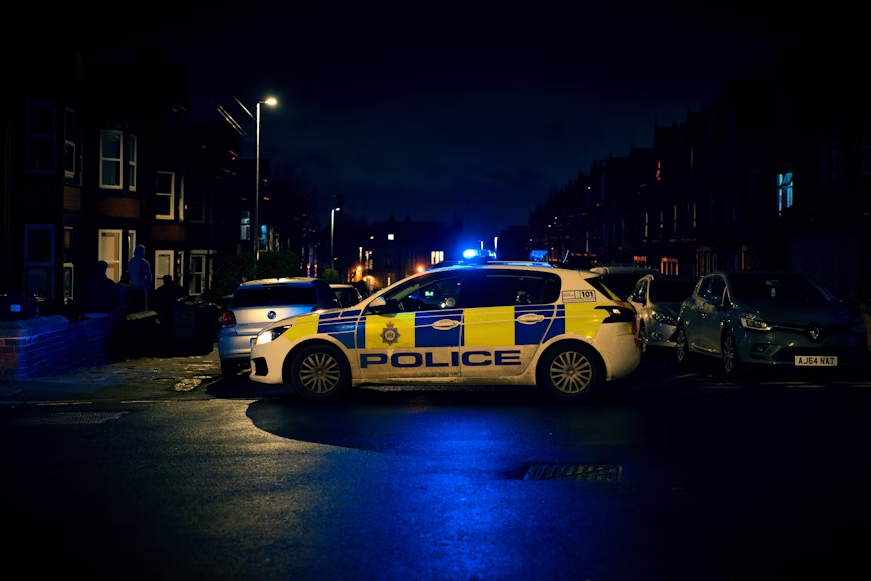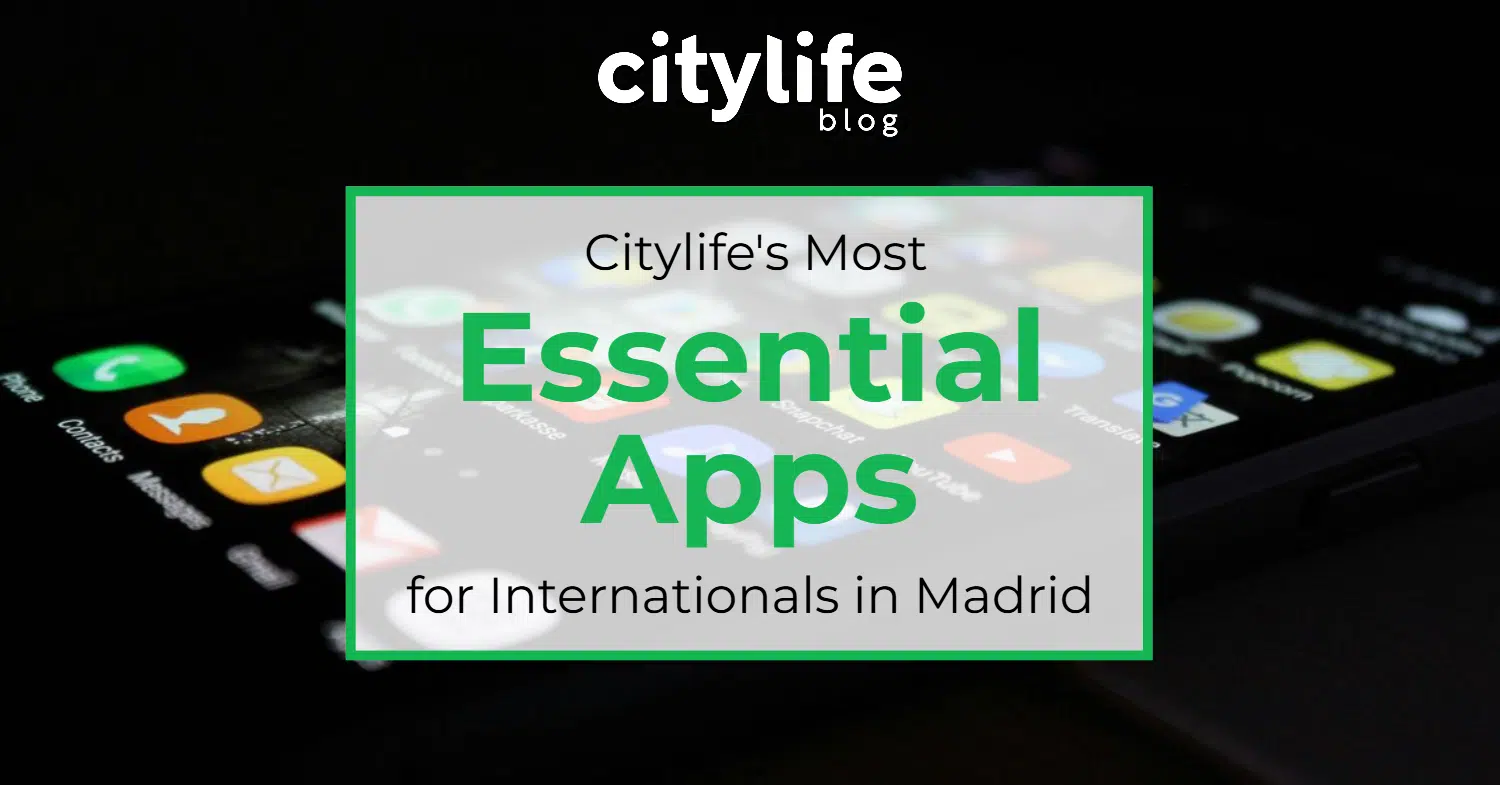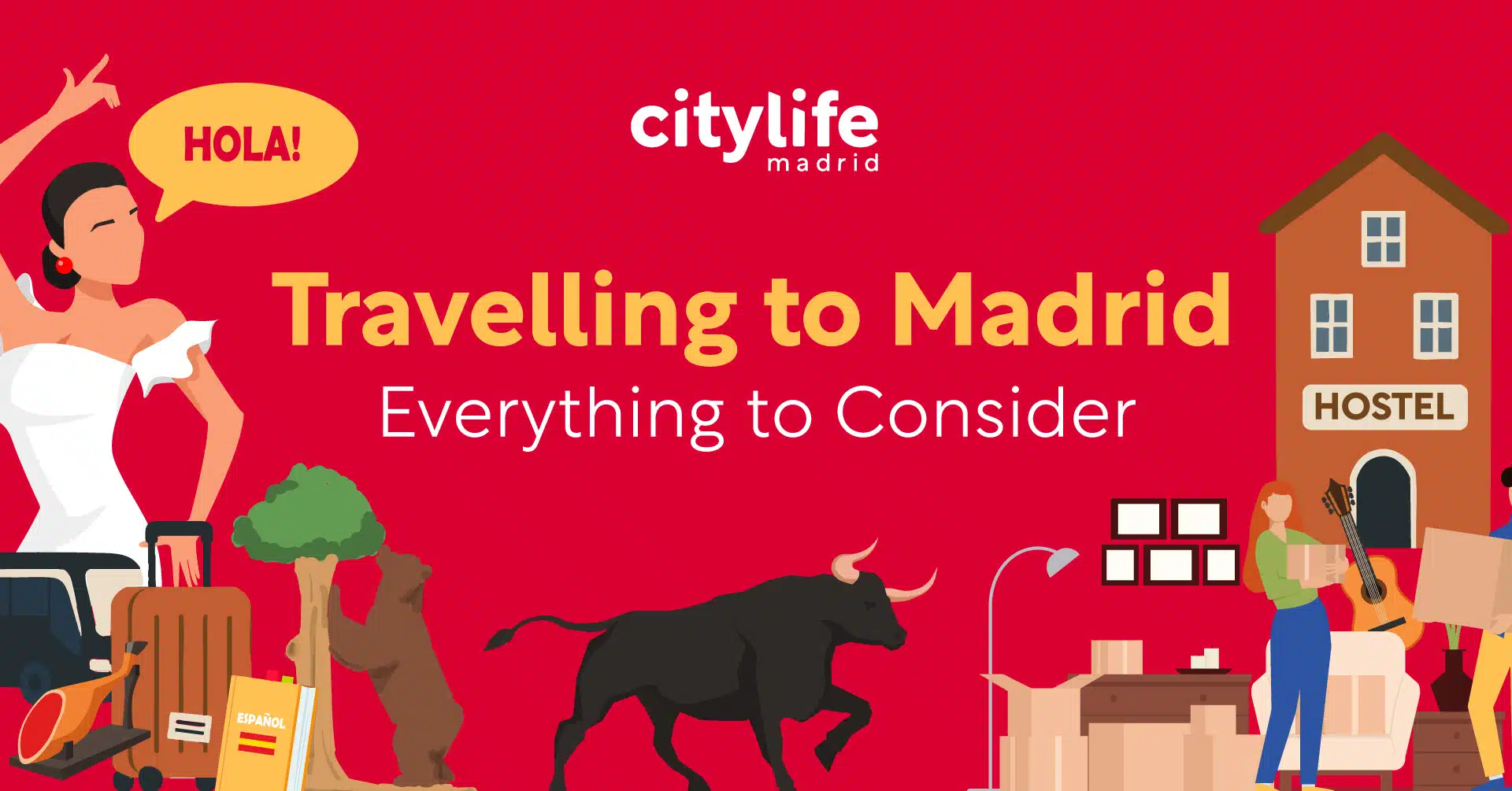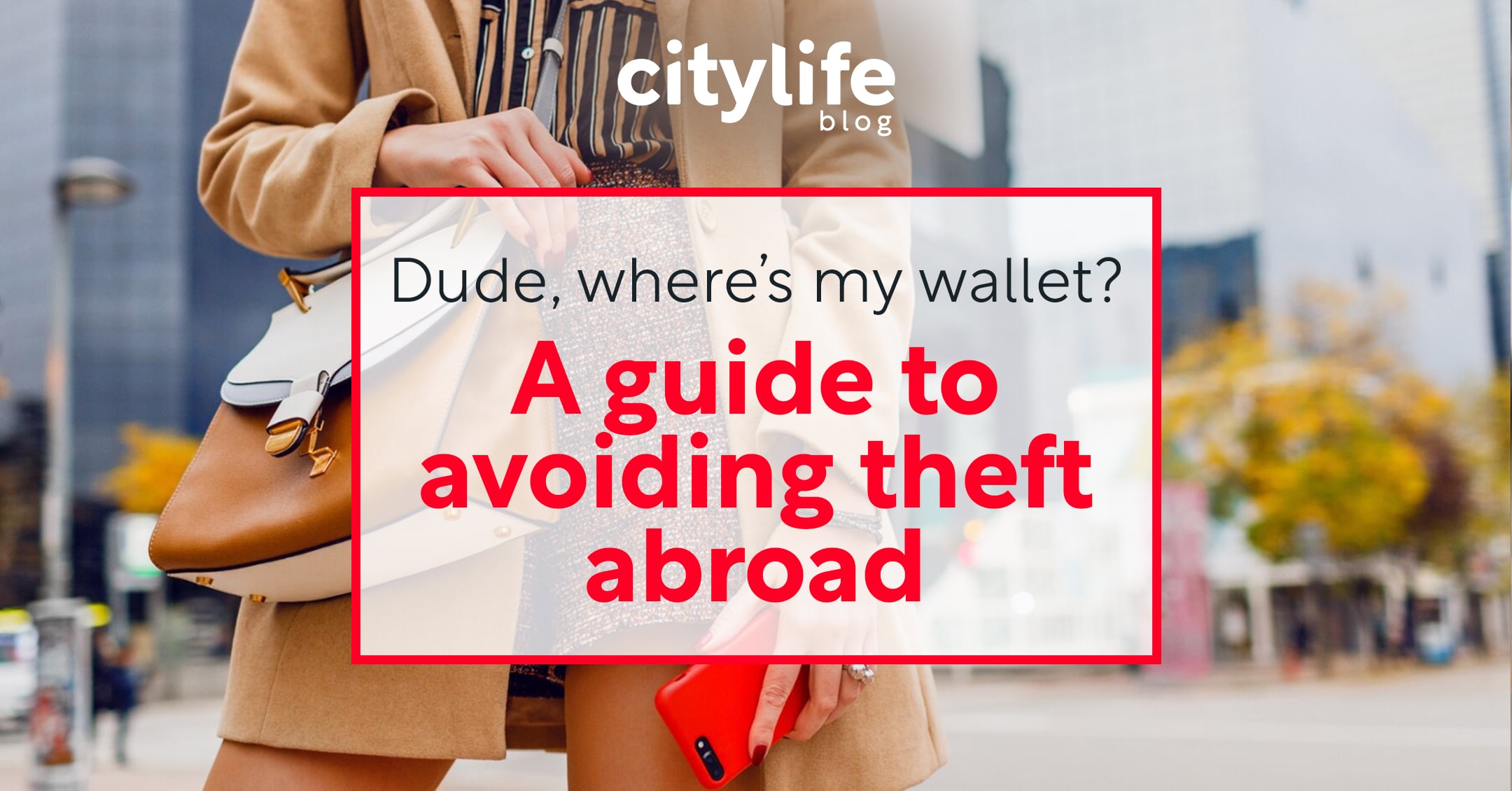
Travelling the world can be one of the most enriching experiences in life, but it’s not without risks. One of the most common issues travellers face, especially in high-tourism countries like Spain, is petty theft. From pickpockets on public transport to scams in busy plazas, a few smart moves can save you from major stress. In this guide, we’ll walk you through modern yet easy strategies to avoiding theft abroad so you can travel worry free!
If you’re planning to travel to Madrid or are looking for things to do in Spain don’t skip out on our several comprehensive travel guides!
1. Before you Travel – What to Prepare
While you might be busy packing your bags and planning out all the places you want to see during your visit to Spain or abroad, its important to prepare the admin side of things as well. In the end, we hope you’ll never need to actually use these items things. But, we know you’ll be happy that you have them prepared should something end up happening! So, what exactly should you prepare before you travel?
- Scan your documents: Make digital copies of your passport, ID, insurance documents, tickets in a secure cloud. While digital copies might not be valid forms of all of these documents, having them may help you while trying to get your new emergency copies printed.
- Set up a GPS tracker: We recommend considering an AirTag or similar to your luggage or backpacks. Also make sure you have activated “find my” on your mobile phone and other electronics.
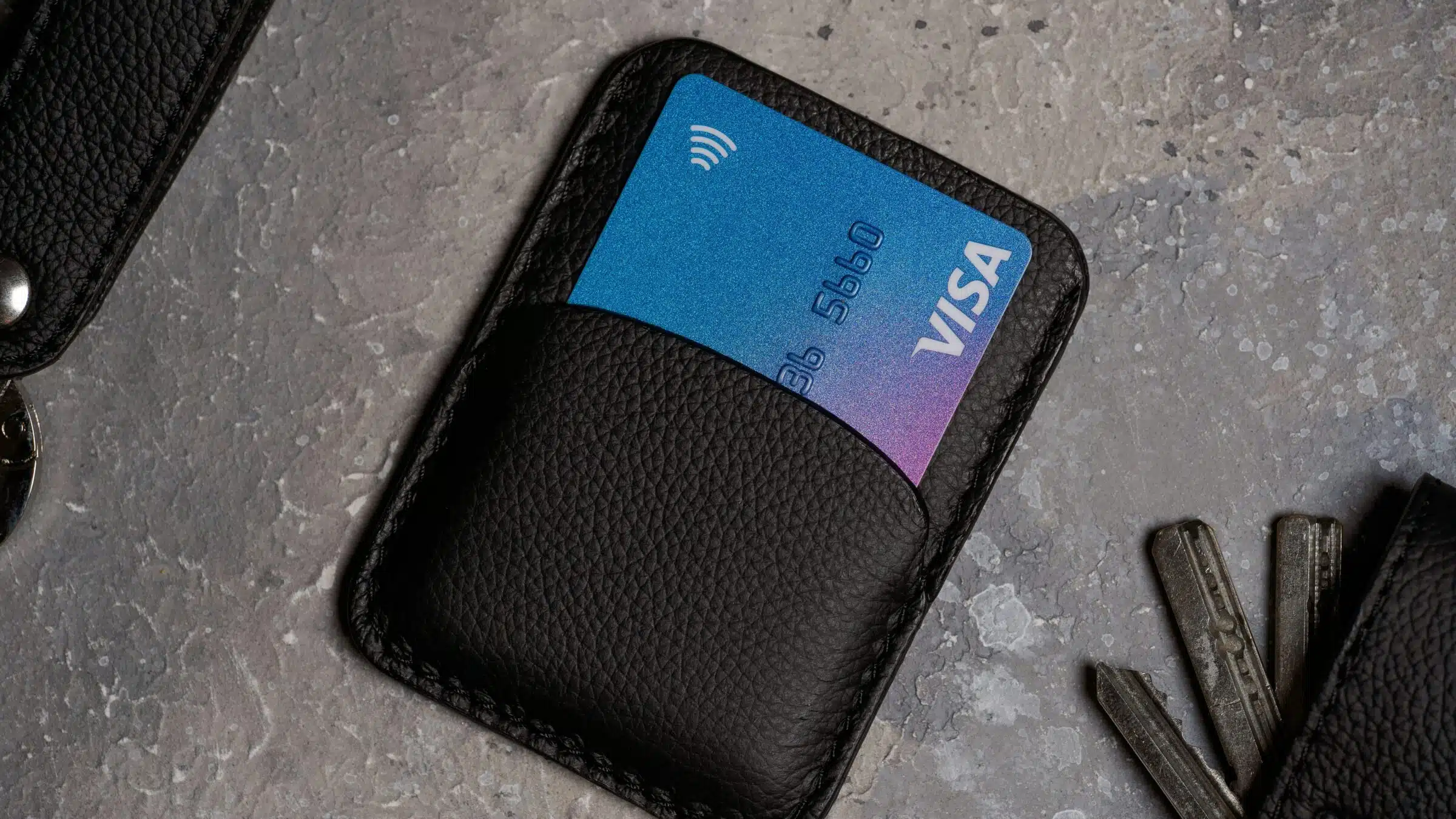
- Set your banking app to travel mode: Most banking apps allow you to tell your bank where you’ll be travelling to and for how long. This will make it easier to block or unblock your cards in case something happens during your trip.
- Bring a physical card for back up: If you rely on paying through your phone’s tap feature, make sure have a physical card with you for emergencies. If your phone is lost or stolen, you’ll want to ensure you still have access to your money!
- Consider anti-theft insurance: Not all travel insurances include theft coverage. If the loss of your items will cause you major financial stress you should consider getting an insurance that will help replace them.
- Consider a minimalist wallet/purse: Carrying less on you means less can actually be stolen. Consider travelling with smaller wallets or purses and force yourself to bring less around with you.
2. Strategic Packing – What to Wear & Carry
Tourists and exchange students are easy targets for theft and scams in Madrid and all across Europe. Often travelling in herds of English speakers, taking photos of everything they see, losing track of their bags and wallets. Follow these simple steps below to make sure you pack items that will help you blend in while still being practical!
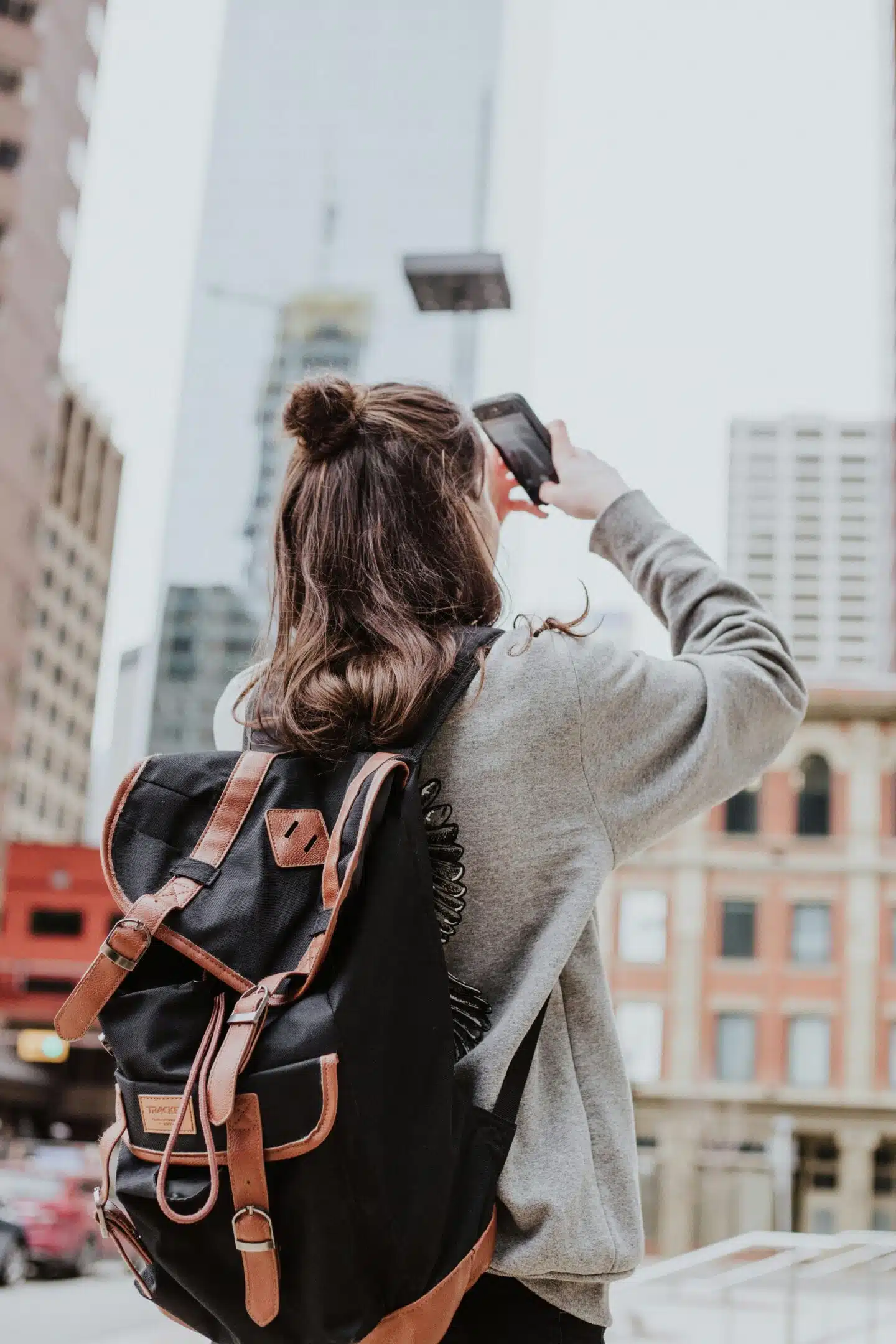
- Dress to blend in: Do some research on where you’ll be and try to fit in with the local style. Things like baseball caps, cargo shorts, backpacks and fanny packs will mark you as a tourist instantly – unless you’re going hiking! If you’re going to a large metropolis like Madrid, you can get away with flashy jewelry and branded clothing. But we always recommend packing modest, simple outfits to avoid attracting attention.
- Choose the Right Bag: Anti-theft backpacks are great in principle, but they will also make it very clear that you are carrying something valuable. We recommend mid-length crossbody bags and reducing exactly how many valuables you’re carrying inside.
- Distribute your Belongings: If you carry everything in one bag, then the chances of you losing everything in one moment increase. We recommend keeping your phone close to your chest (on a case with a strap for example), keeping some cash/card in a front pocket and the rest in your chosen bag.
- Never use your back pocket: Pickpockets are usually so skilled that you won’t even realize something has been taken from your back pocket until long after its happened. So, just don’t put anything in there! Not your phone, not your wallet, not even a little bit of cash.
3. Avoiding Tourist Traps and Navigating High Risk Areas
Even though the main takeaway from this article might be to avoid looking like a tourist, we are very aware that you are actually a tourist and you will be doing some tourist activities. This section is for when you simply can’t avoid those high-risk areas and want to enjoy your visit as stress-free as possible.
3.1. Avoid Tourist Traps When you Can
Spending money on overpriced meals, drinks, and souvenirs can feel like a scam in itself. Many restaurants and shops near major landmarks charge more while offering less in terms of quality. Yet, these places thrive simply because convenience often outweighs caution for most travelers.
Save yourself some money (or make sure you’re spending it on something worth it) by researching local restaurants, cafes or shops that are located just outside these heavy tourist areas in advance. Plan your days around visiting these places, instead of impulsively choosing a restaurant out of hunger and desperation.
If you prefer a more freestyle kind of travel, just ensure you have an idea of local pricing and cuisine so you always have it in mind throughout the day.
Important tip: If you want to ensure you’re signing up for a good meal, we recommend avoiding restaurants with hundreds of items on their menus. A kitchen that cooks multiple cuinses will not likely specialize in any of them.
3.3. Navigating High Risk Areas
Pickpockets thrive in crowded, bustling areas where people pass through en masse every single day. They’re incredibly quick and you will not see them coming (or going, for that matter). That said, evading these thieves – or better yet, not being one of their targets in the first place- can be quite simple. The key is to simply remain calm while also being in control of your belongings.

This can be achieved by always wearing your bags in the front (be it a backpack, a crossbody, a fanny pack or a normal purse). Always having a hand resting on the bag’s opening when passing through a busy crowd. And if possible, avoid waving your phone around in your hand near bike lanes or train doors. If you are eating in a crowded restaurant, always keep your bag/phone attached to your person and never on the table.
These tips, in addition to following our advice from chapter 2 will be more than enough to ward off any pickpockets!
Important Tip: Street performers can seem charming at first (and many are genuinely just trying to share their art), but thieves love to circle these areas to see if there is anything they can take off of distracted tourists. Jump down to chapter 4 to learn about notable street scams to look out for during your trip.
4. Notable Scams to Look Out For
In most situations, pickpockets will spot you long before you spot them and usually there is more than one person involved. Working in groups, one will distract you by begging, following you, asking you questions or dropping something in front of you. While the others check out your bags and pockets. Below is a list of notable scams, schemes and tricks that you should keep an eye on. If you encounter one, remember to just keep walking – do not stop to talk to them, even if it seems rude.
Important Tip: While this article aims to inform travellers, it is not our intention to scare anyone. These are known scams that do exist, but there is no need to travel with fear or apprehension. Just keep an eye out, be smart and trust your gut!
- The Friendship Bracelet / Olive Branch Scam: A person ties a bracelet or offers an olive branch “as a gift” and then demands money afterward.
- The Fake Petition Scam: Usually carried out by young people pretending to collect signatures for a charity, school, or disability support. While you’re distracted, an accomplice pickpockets you.
- The Helpful Local: Someone offers directions or help with a metro ticket machine. While a partner grabs your bag or wallet or they demand a tip from you.
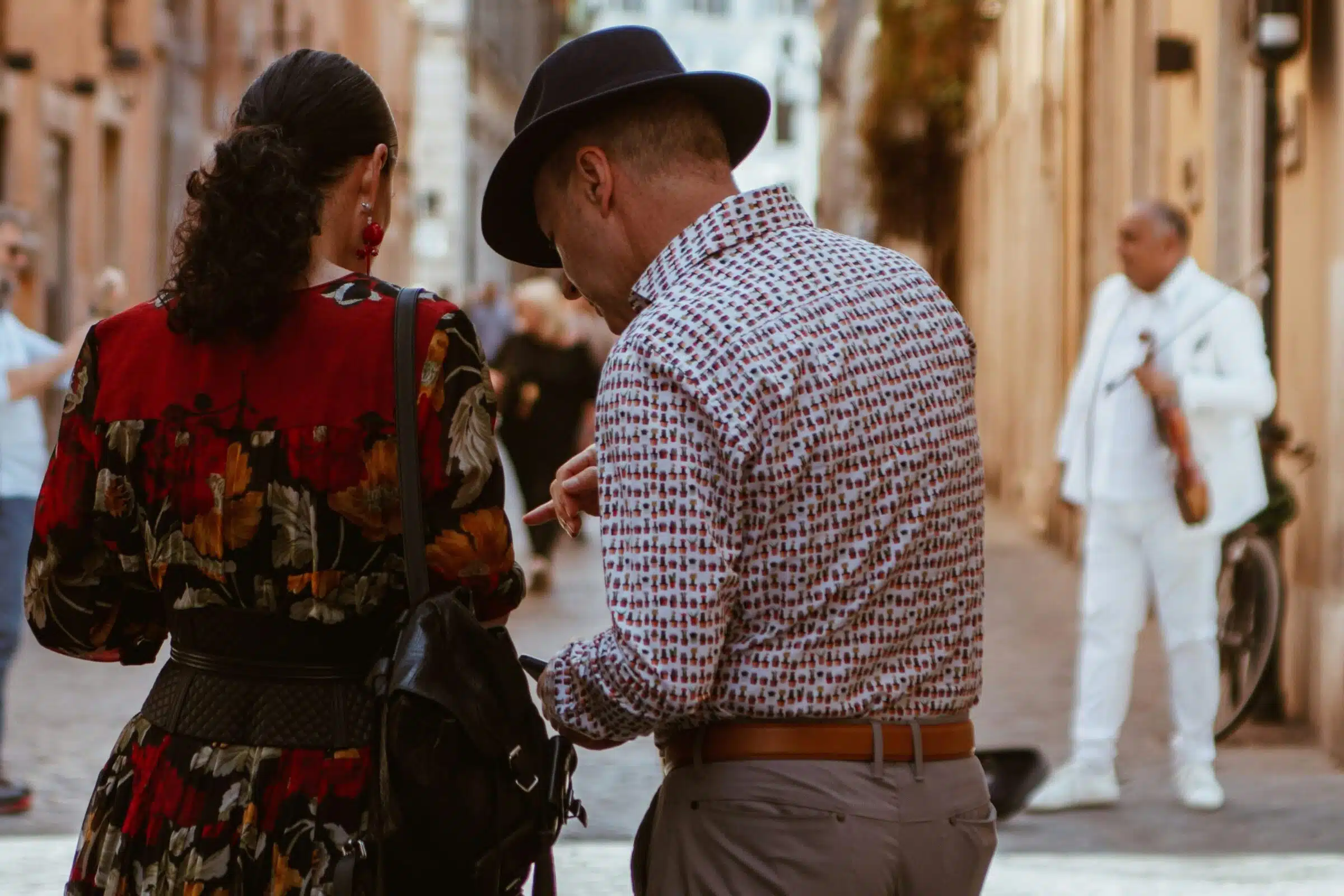
- Distraction Techniques (Fake Fights or Street Performers): A staged argument, commotion, or show happens nearby. While your attention is on the scene, someone lifts your bag or pockets.
- The Taxi Overcharge or Meter Scam: Drivers take the long route, use rigged meters, or claim the meter is broken. Always check the rate and use trusted ridesharing apps (Bolt, Uber, or Free Now).
- The Bait & Switch: Someone comes to your table to display their goods for sale. While showing you these items, they smoothly take your phone, wallet or purse that might be sitting on the table.
5. Navigating the Night Scene Safely
You are most vulnerable to petty theft when the sun is down, people are letting loose and especially when alcohol is involved. We’ll cut to the chase and share the most important things you can do to navigate a night on the town while abroad.
- Go Light: Only bring the essentials with you—leave your passport, backup cards, and excess cash in your hotel safely
- Buddy System: Always go out with at least one friend, especially when drinking. Share your live location with someone you trust.
- Bag Positioning: Use a small, cross-body bag and keep it in front of you. Avoid placing bags on the floor or hanging them behind your chair.
- Drink Safety: Never leave your drink unattended, and avoid accepting drinks from strangers.
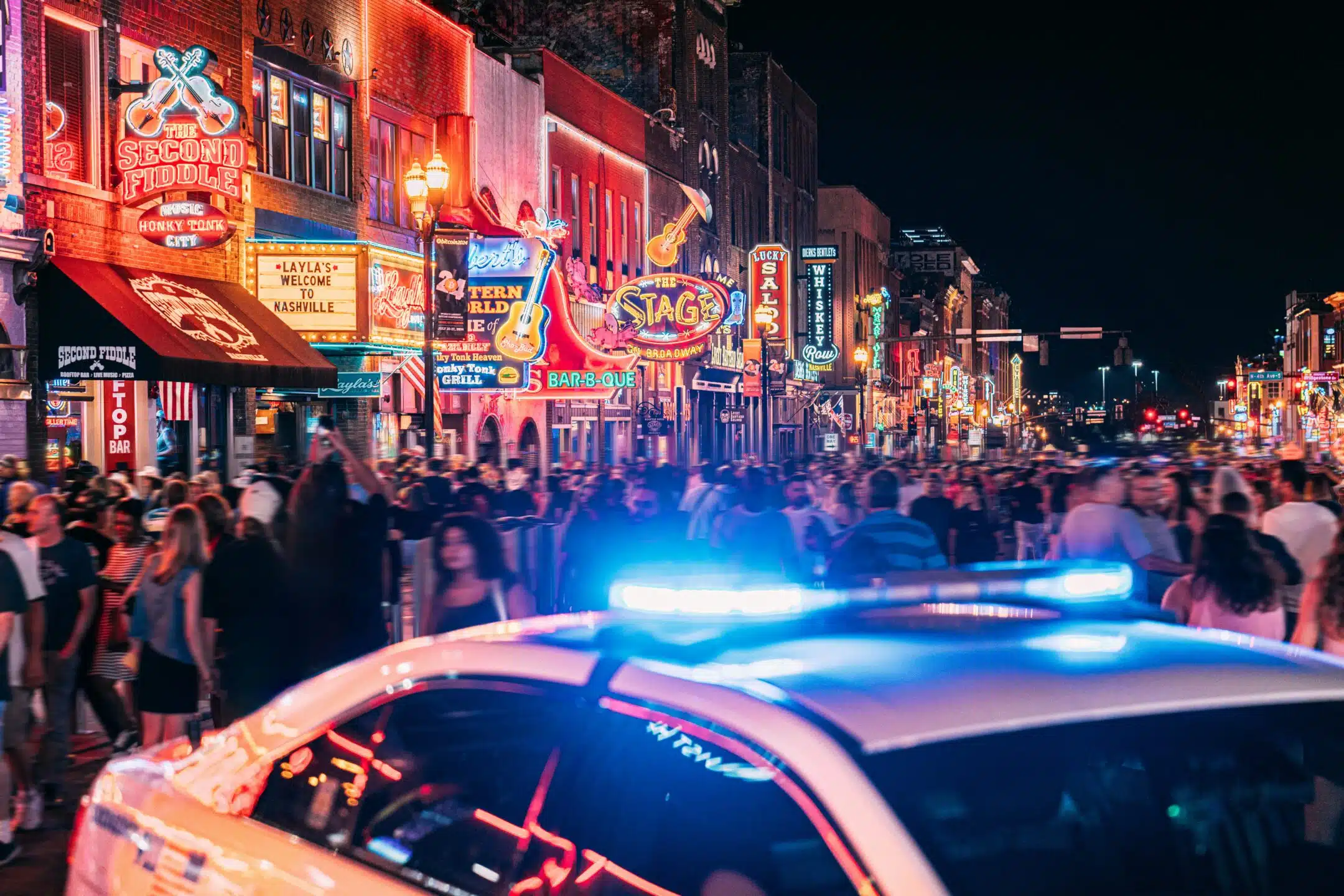
- Avoid Overexposure: Don’t flash expensive phones, watches, or jewelry in bars or clubs. Keep valuables out of sight.
- Plan Your Return: Know your way back to your accommodation in advance. Use ride-share apps like Uber or Cabify instead of hailing random taxis.
- Cash Strategy: Bring only as much cash as you plan to spend, and split it between two places on your person to reduce risk of full loss.
- Be Aware of Your Surroundings: Night spots are prime areas for pickpockets, especially on dance floors, in restrooms, and at coat checks.
6. What to do if you Get Robbed
Even if you’ve taken all the right precautions, theft can still happen. Knowing how to respond can make a huge difference in minimizing stress, financial loss, and time wasted. Here’s what to do:
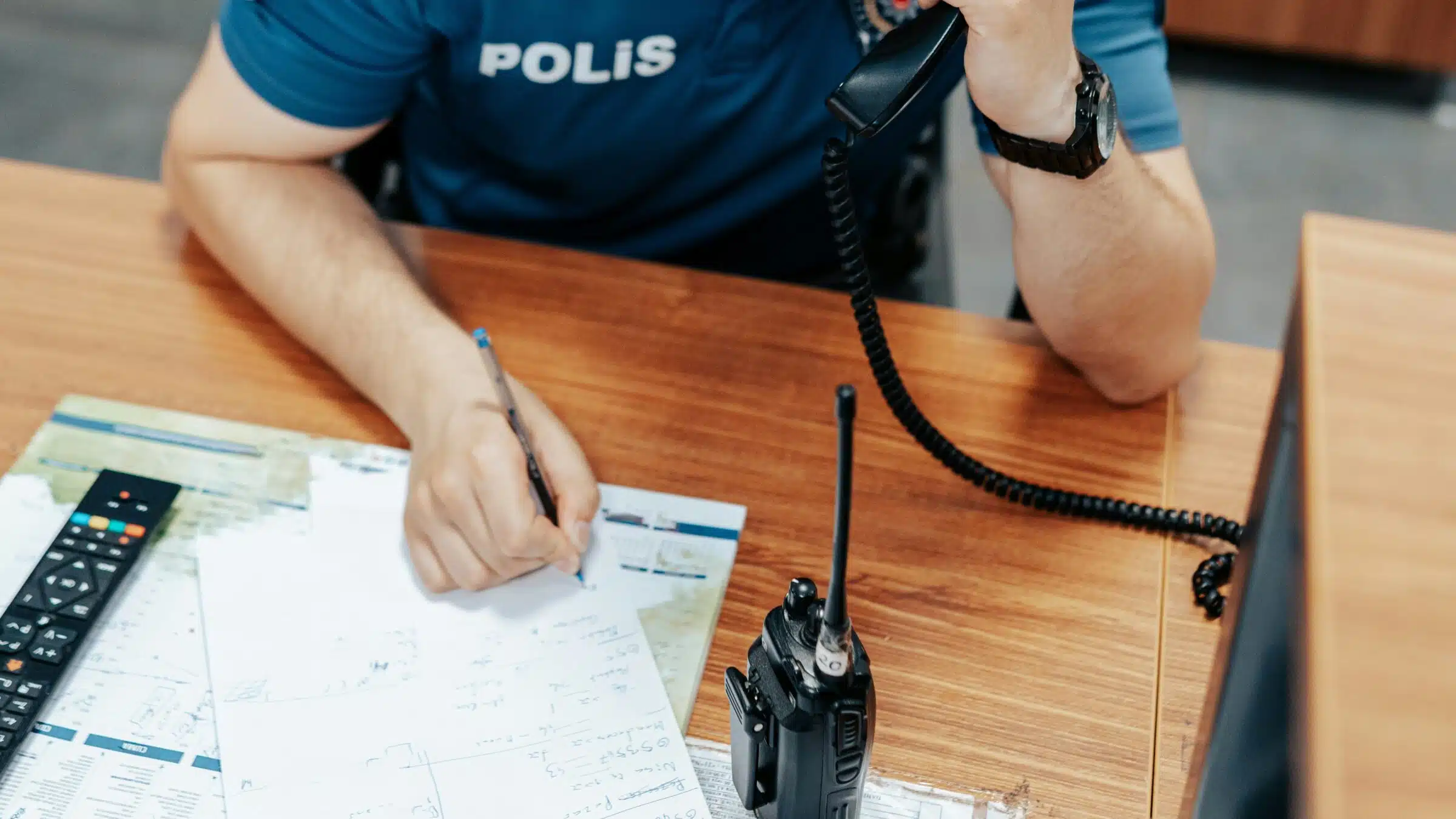
- Report to the Local Police:
- Find the nearest police station and file a report (“denuncia”).
- Be ready to describe what was stolen and provide ID if possible.
- Ask for a copy of the report—it’s essential for travel insurance claims or embassy support.
- Block & Cancel Cards Immediately:
- Use your banking app or call your bank to freeze cards.
- Alert your card issuer to monitor for fraud and order replacements.
- Lock & Track Your Devices:
- Use “Find My Phone” (Apple) or “Find My Device” (Android) to attempt locating your phone.
- If it can’t be recovered, remotely erase data and mark the device as lost.

- Contact Your Embassy or Consulate:
- If your passport is stolen, your embassy can issue an emergency replacement.
- Bring a police report and any remaining ID with you.
- Check for Insurance Coverage:
- Review your travel insurance policy and initiate a claim if eligible.
- Most providers require proof of police report and documentation of the lost items.
- Use Backup Resources:
- If you’ve prepared backups (spare card, digital ID copies), now’s the time to use them.
- Transfer emergency funds from home if needed using Western Union or money transfer apps.
7. Additional Resources That May Help
- Emergency Numbers in Spain:
- Making a Police Report: 9020102 112
- Madrid Local Police: 092
- Spanish National Police: 091
- Ambulance/Fire: 112
- Lost or Stolen Passport:
- Find your embassy in Madrid to replace any lost/stolen documentation.
- Useful Apps:
- Check out our guide to best apps in Madrid
